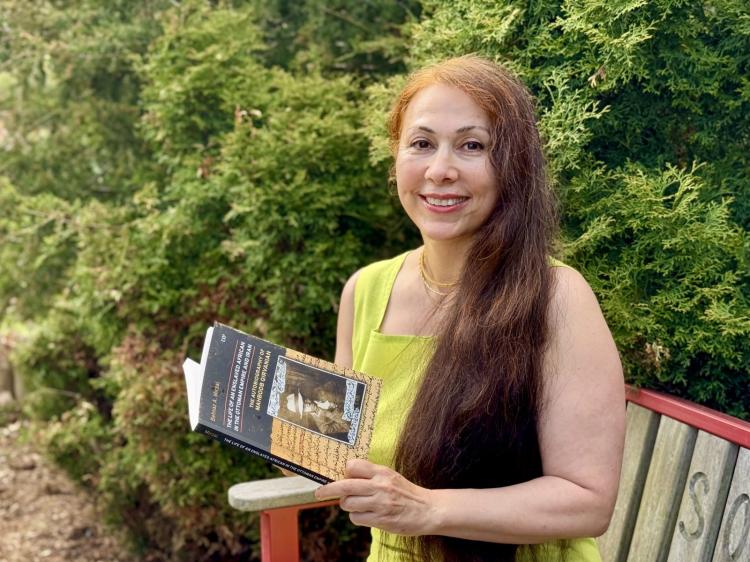For decades, the story of Mahboob Qirvanian sat untold, leaving its historical significance unrecognized until now.
Born in Tunisia in 1894, Qirvanian was enslaved as a child and brought to the Middle East in the time of the Ottoman Empire. He documented his experiences, writing in Farsi and Arabic, but his words remained unread and untranslated as time went on.
That is, until Brock University Professor of History Behnaz Mirzai come upon his text.

Professor of History Behnaz Mirzai's new book is shedding light on the history of slavery in the Middle East.
Qirvanian's account was the missing piece in Mirzai's career-long research into slavery and the African diaspora.
She translated and transcribed Qirvanian's writings, and is now sharing his history with the world in her new book, The Life of an Enslaved African in the Ottoman Empire and Iran: The Autobiography of Mahboob Qirvanian, published May 2 by University of Toronto Press.
A trailblazing researcher in the study of slavery in Iran, Mirzai has authored several books and produced and directed two documentary films on the subject. Her latest project reflects her deep insights into Middle Eastern history.
The text weaves Qirvanian's memoir with contextual writing and imagery, including maps and photos, and overviews of historical geopolitical structures.
For Mirzai, the story began when she came from Iran to Canada in 1997 as a researcher with the Nigerian Hinterland Project under the UNESCO project Routes of Enslaved People.
Mirzai was approached by Qirvanian's grandson who brought forward his grandfather's papers. The documents were handwritten in Farsi, and of the group, only Mirzai could translate it.
When she first scanned the documents and started reading, the historian did not know how important the text would end up being.
"I started putting the pieces together, first transcribing the work in Persian, and then in English. I researched the areas and people referenced and realized how significant this text might be; it was authentic, lived experience lining up with historical facts," she said.
Through his memoir, Qirvanian explained the enslavement process in Africa and how he came to Iran. Mirzai said the key piece to the puzzle was the timing of when he was taken to the Middle East.
"It was a time of great transition in the geopolitical condition of the Middle East before the First World War," she said. "After the war, the map of the Middle East changed, but up until that time, it was Arabia (modern day Saudi Arabia) under the Ottoman Empire."
Qirvanian stayed under the Ottomans and was bought and sold many times, his name changed under each transaction.
When he was bought for the last time, Qirvanian was brought to Iraq by leaders of the Iranian Constitutional Revolution who invited him to live alongside them in their seminary.
"They put him in school, where he learned mathematics as well as several languages, including Persian, Arabic and French," Mirzai said. "Even though he was serving them, Qirvanian was not treated like a traditional slave they called him our child.'"
It was not a typical slave-master relationship, but one of patronage and respect, she said.
Mirzai said the first-hand account of slave interactions with high-ranking Middle Eastern individuals sheds light on how the concept of race differs from other places.
Afua Cooper, Inaugural Distinguished Professor of Black Canadian and African Diasporas Histories, and Feminist Epistemologies, University of Toronto Scarborough, said reading Mahoob Qirvanian's autobiography, at times, brings tears to the eye and breaks the heart.
"We are used to slave narratives from the Americas and Western Europe, but here for the first time is a narrative of an enslaved African coming from the world of the Persian Gulf. With this intervention, Behnaz Mirzai has made an immense contribution to global scholarship and to the field of slave narrative," Cooper said.
For Mirzai, sharing this once-hidden history is the outcome of her life's work.
"I was inspired by the political and socio-economic changes, by my multi-ethnic background and by my past to understand the experiences of others, which let me bear witness through my research to peace, equality and justice for all humankind."










